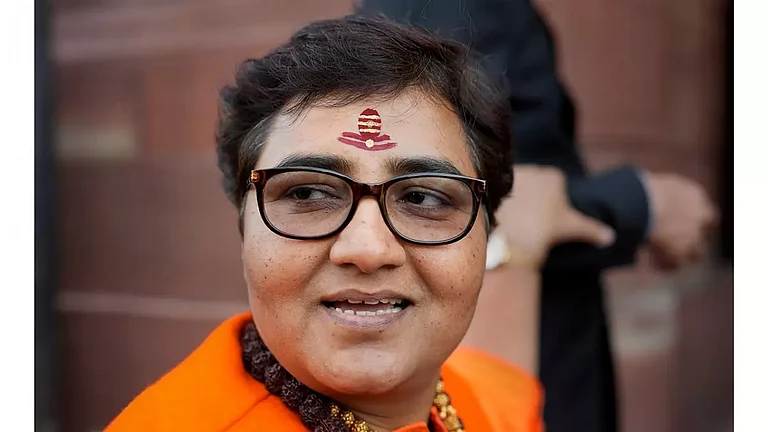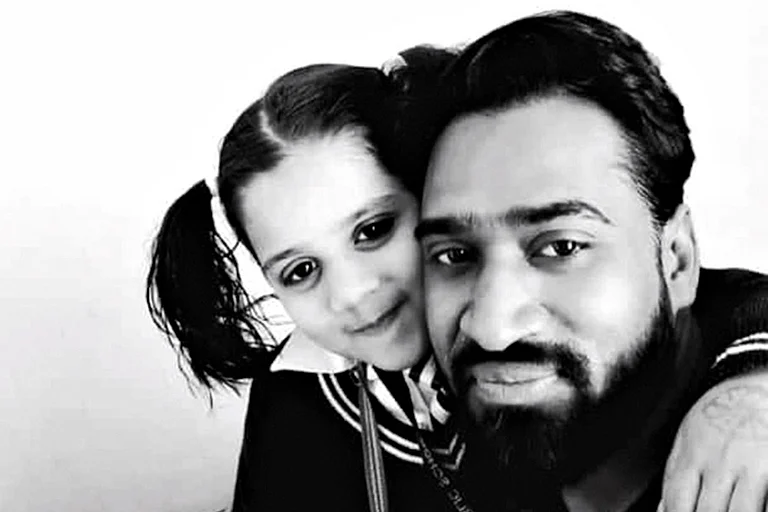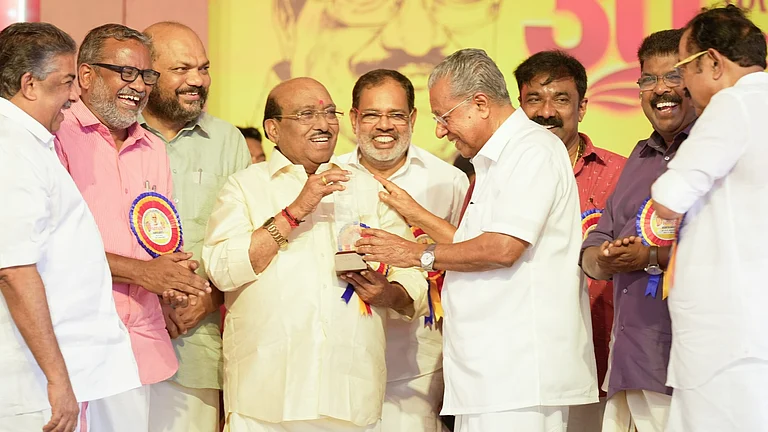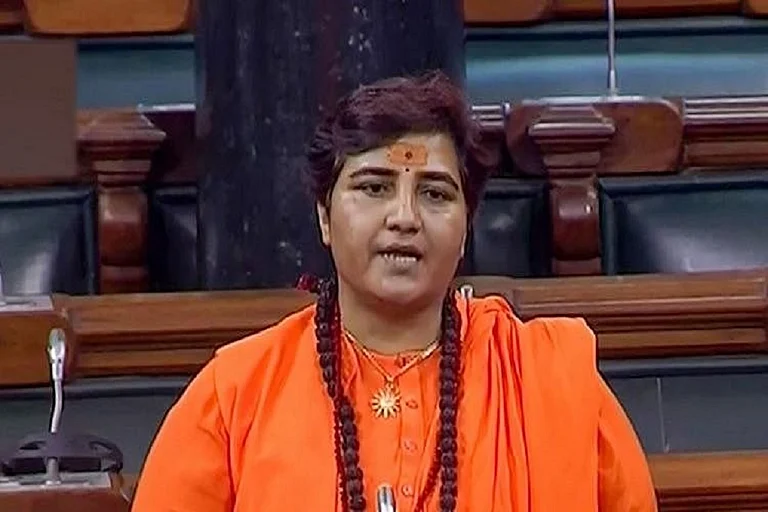
Pragya Thakur said, at an event, that parents should physically punish their daughters for visiting non-Hindu homes.
Congress criticised her remarks, calling them hateful and regressive.
The statements have sparked widespread social media outrage.
Former Bhopal MP and BJP leader Pragya Singh Thakur has sparked controversy after urging parents to physically punish daughters who visit the homes of non-Hindus. Speaking at a religious event in Bhopal earlier this month, Thakur said that parents should “break the legs” of daughters who disobey them.
In a video of the event that has gone viral on social media, Thakur said, “Strengthen your mind, and make it so strong that if our daughter does not obey us, if she goes to a non-Hindu’s house, leave no stone unturned in considering breaking her legs.” She added that parents carry out such acts “for the well-being and future” of their children, not to harm them.
Thakur also warned families against daughters who do not respect traditional values or attempt to run away from home, saying that parents must “stop them by any means through scolding, explanation, or even beating, but do not let them step out of your homes.”
The former-BJP MP's remarks have drawn criticism from the Congress, which accused the saffron party of spreading “hatred and intolerance.” Congress spokesperson Bhupendra Gupta questioned the attention on the issue, noting that only seven cases of alleged religious conversions in Madhya Pradesh had resulted in convictions.
Thakur has previously made similar remarks that parents must ensure discipline and “cultural upbringing” in their children.
Who Is Pragya Thakur?
Pragya Singh Thakur is a politician and former Member of Parliament from Bhopal, representing the Bharatiya Janata Party (BJP). She gained national attention due to her controversial statements and her alleged involvement in the 2008 Malegaon blast case, wherein she waslater acquitted in the case in 2025. Thakur is known for her hardline Hindu nationalist views and has frequently spoken about promoting “cultural upbringing” and discipline among youth.





























